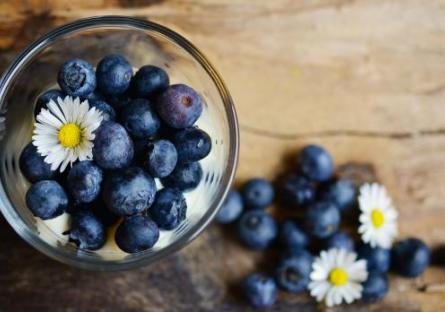This article appears for archival purposes. Any events, programs and/or initiatives mentioned may no longer be applicable.

Wellness Wednesday: Nature’s Candy (For Your Brain)
They say you should dress for success; the same is true for eating. A diet lacking the right balance of nutrients and vitamins is like a car running on bad brakes—sure, the wheels are turning, and it can still go but not well and not for too long. Your brain is particularly susceptible to the beneficial effects of a good diet. Eat the right food and you can sharpen your critical faculties, improve memory retention, and be more present and alert in your day-to-day life.
Here are six kinds of food that can have a noticeable positive impact on your brain’s health.
Leafy Greens
Eating “like a rabbit” has its perks: leafy green vegetables like kale, spinach, arugula, and collard greens, and broccoli are great for your brain. Leafy greens are packed with a melange of nutrients that include vitamin K, beta carotene, folate, and vitamin E. These nutrients help prevent cognitive decline for older adults, improve memory retention, and provide antioxidants that protect cells from free radical damage that can age your brain.
Eggs
Eggs aren’t just a breakfast staple—they can hatch a wide variety of health benefits. Eggs are a prime source of choline, which has been linked to reducing inflammation and promoting healthy brain function. Choline is a nutrient that can have a very positive effect on your memory and helps build membranes that can improve communications between your brain cells. Eggs also provide a strong medley of B vitamins which can boost your cognitive performance.
Coffee
Drinking coffee can be great for your brain... in moderation. The caffeine in coffee can “speed up” your brain: caffeine shares a similar molecular structure to adenosine, a neurotransmitter in your brain that binds itself to neurons and slows them down. When you consume caffeine it competes with adenosine for space on your neurons, keeping that sluggish “I need to sleep” feeling at bay and sharpening your perceptions. Drinking coffee makes you feel more alert because it’s preventing adenosine from slowing down your neural activity.
Coffee can also improve your resting brain entropy, which affects your brain’s ability to process information. That can make it easier to pay attention, learn new things, and retain information. One thing to keep in mind, though, is that you can develop a tolerance to caffeine over time which may mean you’ll have to consume more coffee in order to achieve these results.
Walnuts
Nuts should be a part of any balanced diet. Walnuts are especially important because they offer twice as many antioxidants as any other nut. They also contain alpha-linolenic acid, which is a plant-based omega-3 fatty acid. This acid helps combat cognitive decline that has been linked to dementia and Alzheimer’s disease. Eating 1 to 2 ounces of walnuts per day can improve cognitive function. Mix some into your next leafy green salad for a double dose of brainy goodness.
Blueberries
Blueberries are bursting with both flavor and high nutritional value. These little berries are packed with vitamin C, vitamin K, manganese, and phytonutrients. These help stimulate the flow of blood and oxygen in the brain, as well as lower the risk of age-related cognitive impairment and decline. Eating blueberries can help improve your memory retention and your ability to concentrate and process new information.
Whole Grains
Studies have found that there’s a correlation between a low whole grain intake diet and advanced cognitive decline. Whole grains are good for brain functioning! They provide a healthy source of glucose, which the brain uses as part of its caloric burn to fuel its activities. Whole grain breads, oatmeal, quinoa, and brown rice are all excellent brain foods.